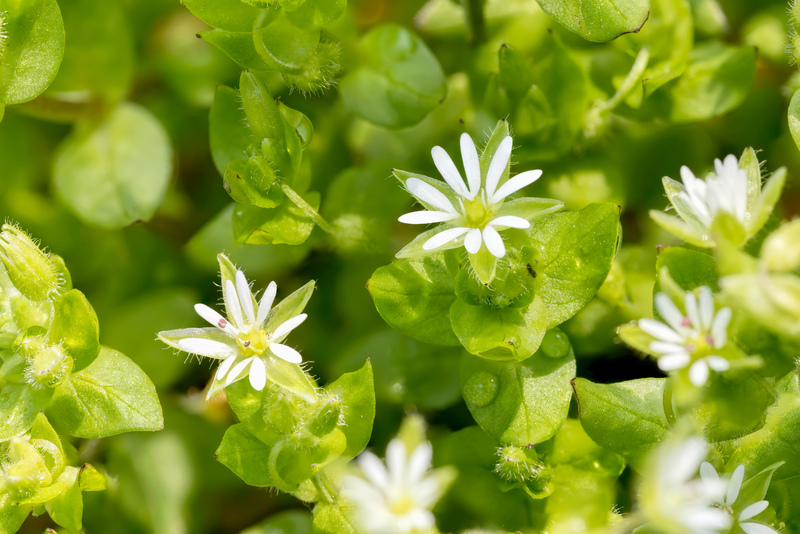Vertical Gardens: Beauty Meets Functionality
Posted on 05/06/2025
Vertical Gardens: Beauty Meets Functionality
Discover how vertical gardens transform urban landscapes and indoor spaces by merging aesthetics with practicality. Uncover the advantages, design inspirations, and care tips for building your own living wall in our comprehensive guide!
Introduction to Vertical Gardens
In the evolving world of urban landscaping, vertical gardens--also known as living walls, green walls, and living vertical planters--have carved a niche by bringing natural beauty, improved air quality, and smart space utilization to both interiors and exteriors. As our cities grow more crowded, the need for innovative green solutions rises. Vertical gardens beautifully blend form and functionality, providing a sustainable answer to modern design challenges.

What Are Vertical Gardens?
A vertical garden is a collection of plants grown vertically, usually supported by structures attached to walls or other upright spaces. Unlike traditional ground-planted gardens, these systems allow for flourishing greenery in places where horizontal space is scarce. Vertical gardening can be as simple as hanging pots or as sophisticated as professionally engineered installations featuring automated irrigation and drainage.
Common Types of Vertical Gardens
- Living walls: Large panels covered with various plants, often integrated into building exteriors or interiors.
- Pocket planters: Pocketed fabric or felt panels that hold soil and plants, suitable for herbs and small flowers.
- Trellises: Climbing plants or vines guided up a framework, classic for courtyards or patios.
- Modular systems: Stackable or tile-like units that can be expanded or rearranged.
- Hydroponic green walls: Soil-free systems using nutrient-enriched water to support plant growth.
The Benefits of Vertical Gardens
Vertical gardens are more than just a visual delight--they are an investment in both the environment and personal well-being. Here are some of the top benefits:
Maximize Space Usage
Space-saving is one of the primary attractions of vertical gardening. Whether in a compact apartment, office setting, or bustling city center, vertical planters efficiently utilize limited space by going upward, not outward. This accessibility democratizes gardening for people with restricted outdoor areas, such as balconies and terraces.
Enhance Aesthetics
A vertical garden wall acts as an ever-changing work of art, adding vibrant color and texture. Green wall installations transform bland building facades and sterile interiors into welcoming oases, boosting property value and improving mood.
Boost Air Quality
Plants are natural air purifiers. A living wall absorbs carbon dioxide, filters pollutants, and releases oxygen, thus enhancing indoor air quality. Many studies have shown that spaces with abundant greenery have fewer airborne toxins and lower particulate matter.
Natural Insulation & Energy Savings
Vertical gardens act as insulation barriers for buildings, reducing temperature fluctuations. This leads to less demand for heating and cooling, thus saving energy and lowering utility costs--a win for sustainability and your wallet.
Promote Biodiversity
By incorporating a variety of plant species, vertical gardens create mini-ecosystems. They provide valuable habitats for insects, birds, and pollinators, fostering urban biodiversity even in densely populated areas.
Acoustic Benefits
Green walls help absorb and block noise. This is particularly beneficial in noisy environments like offices, schools, or city apartments, where vegetation can dampen unwanted sounds, creating a more peaceful ambiance.
Design Ideas for Vertical Gardens
The beauty of vertical gardens lies in their versatility. Whether your taste runs modern or cottage, here are some exceptional design concepts to inspire your green space transformation:
Living Wall Art
Transform an ordinary wall into a dynamic artwork by arranging different plants in patterns, gradients, or geometric shapes. Mixing flowering plants with a variety of foliage textures delivers both color and depth.
Edible Vertical Gardens
Grow your own food in a vertical garden by planting lettuces, kale, strawberries, tomatoes, and aromatic herbs. Kitchen gardens on patio walls or even indoors bring convenience and fresh flavors to your cooking--all while looking lush.
Privacy Screens
Use vertical greenery as a natural screen to enhance privacy. Tall, densely planted structures can separate outdoor zones, shield balconies from neighbors, or cover unattractive fences.
DIY Pallet Gardens
Repurpose wooden pallets by filling the spaces with potted plants, succulents, or trailing vines. This upcycled approach is wallet-friendly and adds a rustic, eco-conscious flair to your decor.
Hydroponic Kitchen Walls
Try hydroponic vertical gardens for a soil-less solution--perfect for high-tech homes. These self-watering systems enable year-round, low-maintenance cultivation of greens and herbs, even in small urban kitchens.
How to Build a Vertical Garden: Step-By-Step Guide
Constructing your own vertical garden is easier than it may seem. Follow these proven steps for a thriving, space-saving display:
1. Choose the Right Location
- Indoors: Pick a bright location with indirect sunlight, like near windows or under skylights.
- Outdoors: North or east-facing walls suit most plants; ensure shade-tolerant varieties for less light.
2. Select a Vertical Gardening System
- Pocket panels for herbs or small flowers
- Trellises or wire grids for climbing plants
- Modular or hydroponic kits for advanced installations
3. Install a Sturdy Framework
- Attach your structure securely to a wall, ensuring it can handle the combined weight of plants, soil, and water.
- Use waterproof backing to protect building surfaces, especially indoors.
4. Set Up Irrigation and Drainage
- Hand-watering works for small systems, but drip irrigation is ideal for larger or more automated walls.
- Ensure water drains away to prevent mold and mildew.
5. Choose Your Plants
- Favor sturdy, shallow-rooted species like ferns, pothos, philodendron, succulents, and herbs.
- Mix textures and colors for maximum visual impact.
6. Plant and Maintain
- Arrange plants tightly for an instant effect, or space further apart for future growth.
- Fertilize every few months and regularly check for pests.
The Best Plants for Vertical Gardens
Not all plants are created equal when it comes to vertical garden walls. Here are star performers known for hardiness and beauty:
- Ferns: Lush, adaptable, and perfect for moist environments.
- Pothos and Philodendron: Fast-growing, trailing vines for low to medium-light spaces.
- Succulents: Require little water, thriving in sun-drenched vertical gardens.
- Heuchera (Coral Bells): Colorful, compact foliage for shady spots.
- Sedum: Low-maintenance, ideal for outdoor living walls.
- Herbs (Mint, Basil, Thyme): Edible, aromatic, and easy to manage.
- Orchids: Striking epiphytes for humid environments and indoor displays.
Maintenance Tips for Thriving Vertical Gardens
*Keeping your vertical garden lush and vibrant takes some care.* Here's how to ensure your vertical garden stays healthy:
- Check soil moisture frequently; vertical gardens dry out faster than ground beds.
- Use liquid or slow-release fertilizers to replenish nutrients.
- Prune regularly to encourage fullness and control spread.
- Inspect for pests (like aphids or spider mites) and act promptly.
- Clean irrigation lines seasonally to ensure proper water flow.
Innovative Uses for Vertical Gardens
Beyond their decorative charm, vertical gardens can serve a multitude of purposes:
- Air filtration: Living green walls scientifically remove toxins such as formaldehyde and benzene from the air.
- Urban farming: Localized food production is possible even on high-rise balconies, supporting food security.
- Workplace productivity: Studies show employees in greener offices feel less stress and more job satisfaction.
- Sustainable branding: Businesses and hotels use prominent living walls to signify eco-consciousness.
- Climate control: Extensive outdoor vertical gardens can shield buildings from solar heat, reducing urban heat island effects.
Sustainability and Environmental Impact
Adopting vertical gardening means actively participating in urban sustainability. Green walls influence both cities and health:
- Combat air pollution by filtering urban smog and dust.
- Reduce the carbon footprint of buildings through passive cooling and insulation.
- Support pollinators and wildlife, even in urban environments.
- Help manage rainwater runoff, reducing pressure on city drains during heavy rains.
Common Challenges and Solutions
Every gardening method has its challenges--vertical gardens included. Here's how to tackle common issues:
- Drying out: Install timed irrigation or self-watering systems for consistent moisture.
- Plant death or yellowing: Select resilient, locally-adapted plants and ensure adequate drainage.
- Pest infestations: Regularly inspect and use natural remedies when needed.
- Structural worries: Use lightweight growing mediums and reinforce the supporting wall as needed.
Cost Considerations
The price of vertical gardens varies based on scale, material, and system sophistication:
- DIY pallet walls: Inexpensive, especially using repurposed materials, costing as little as $50-100.
- Modular panels: Mid-range costs, suitable for home installations, ranging from $200-$2,000+.
- Professional living walls: High-end, large-scale green walls start from several thousand dollars, depending on area and features (like automatic irrigation).
*Maintenance, plant replacement, and irrigation should also be factored into long-term costs.*

Famous Examples of Vertical Gardens
For inspiration, look to these iconic vertical gardens from around the world:
- Musee du Quai Branly, Paris: Features a spectacular, 200-meter-long vertical garden by botanist Patrick Blanc.
- One Central Park, Sydney: Showcases a lush facade, setting a benchmark for urban green architecture.
- CaixaForum Madrid: An enormous vertical wall garden covering an exterior wall, delighting visitors year-round.
Conclusion: Where Beauty and Functionality Meet
Vertical gardens are a testament to how contemporary design can creatively address environmental, spatial, and aesthetic challenges in urban life. By choosing living walls, you're not only inviting natural beauty into your space but also integrating practical functions--from air purification and insulation to growing your own food and improving mental well-being.
Ready to give vertical gardening a try? Begin with a small project, or go bold with a statement green wall. Whether for home, office, or public space, these living masterpieces ensure that with every glance, beauty truly meets functionality.
Let your walls bloom and your space thrive with the artistry and innovation of vertical gardens!
Latest Posts
Plant the Seeds of Change: Guide to a Garden Makeover
Privacy-focused gardens: fast-growing hedges to the rescue
Crafting Nutrient-Rich Soil from Discarded Organics



